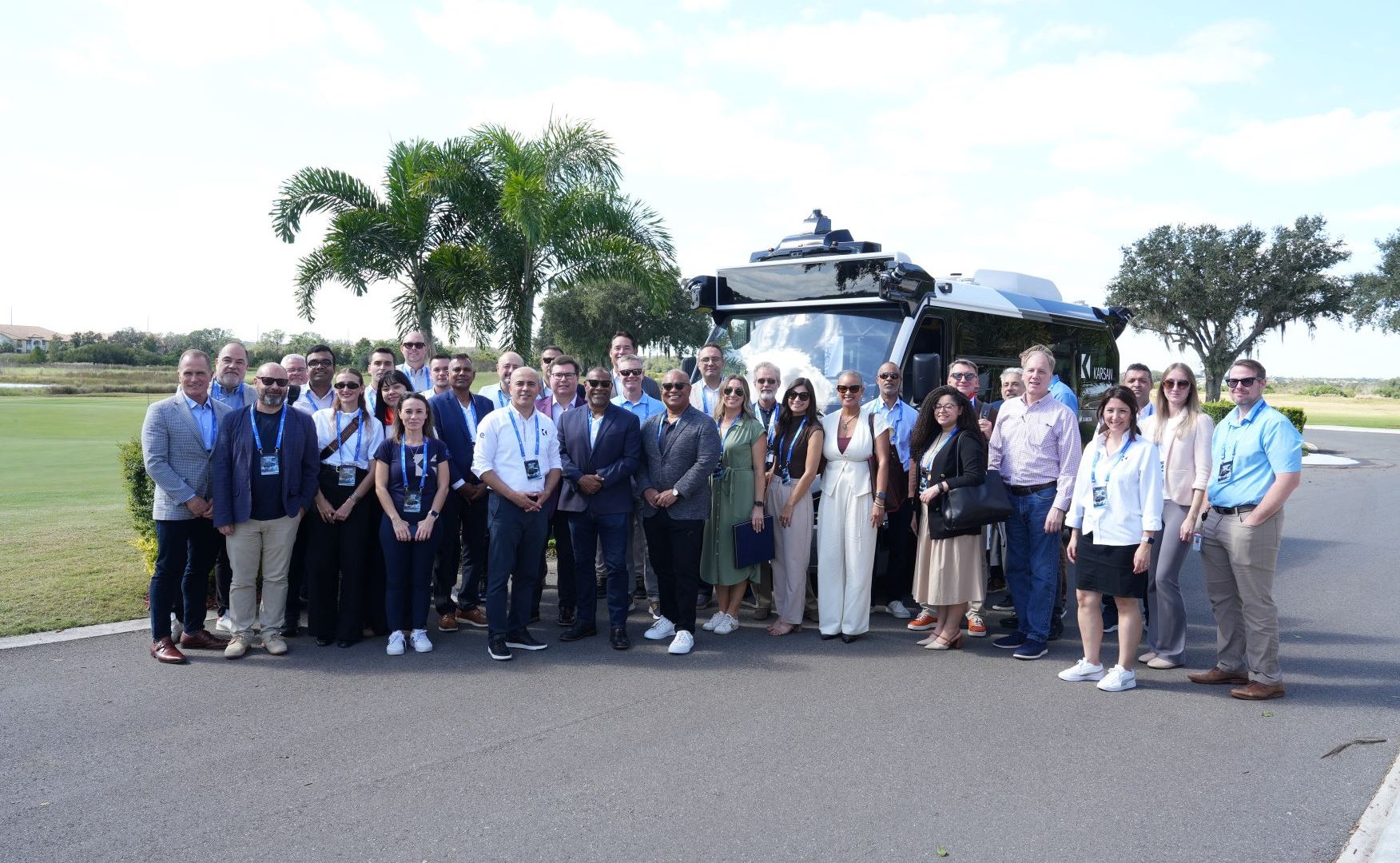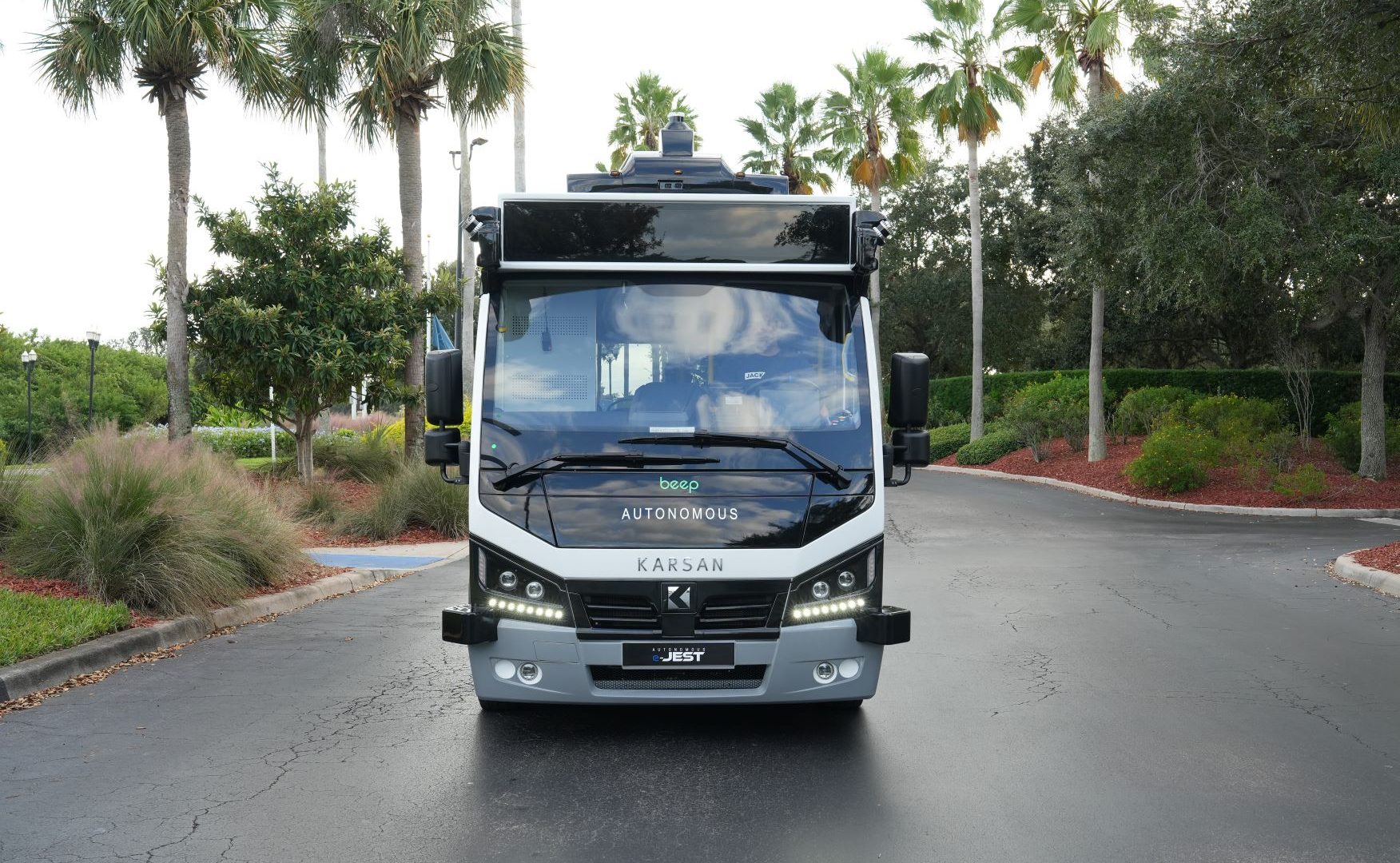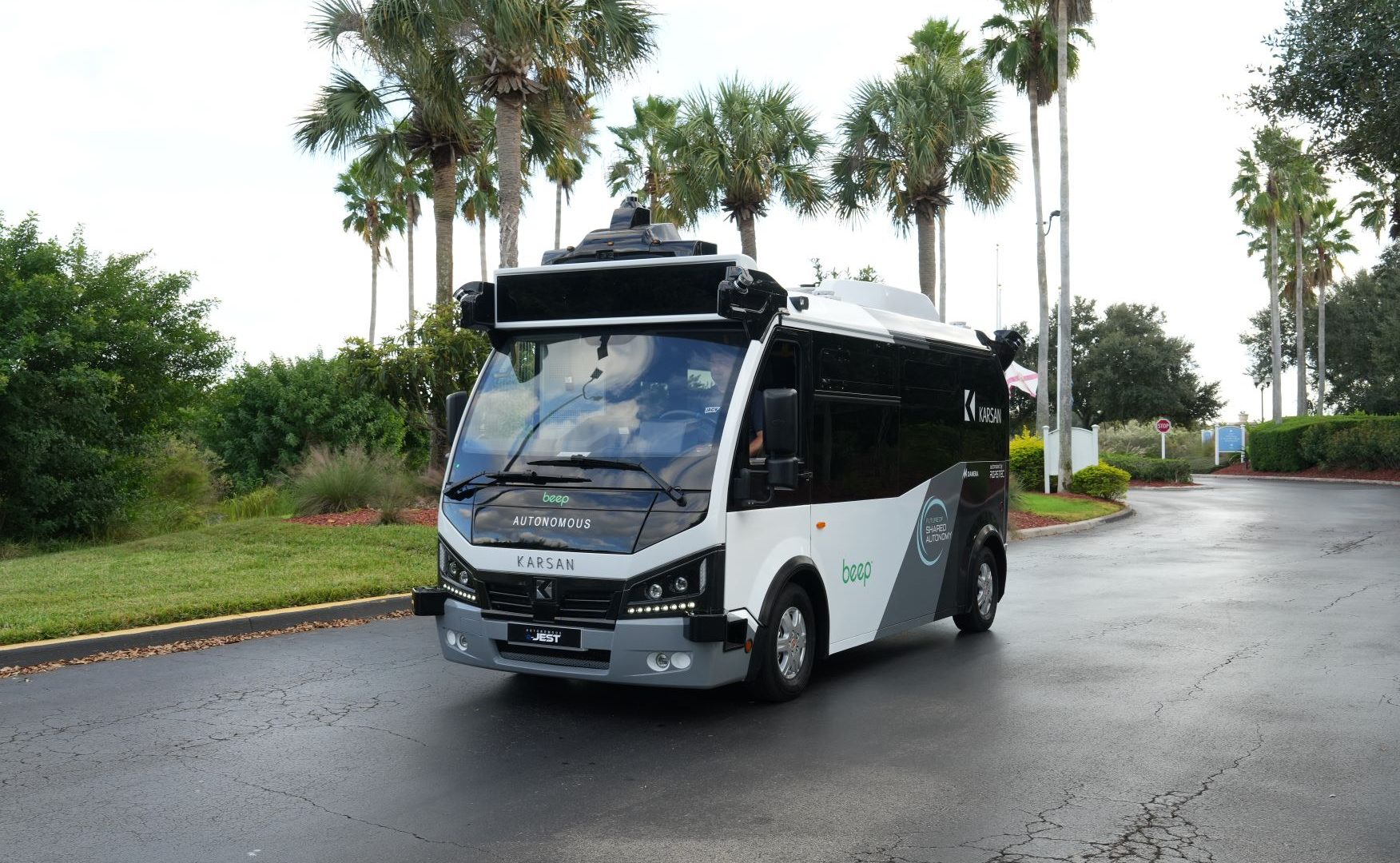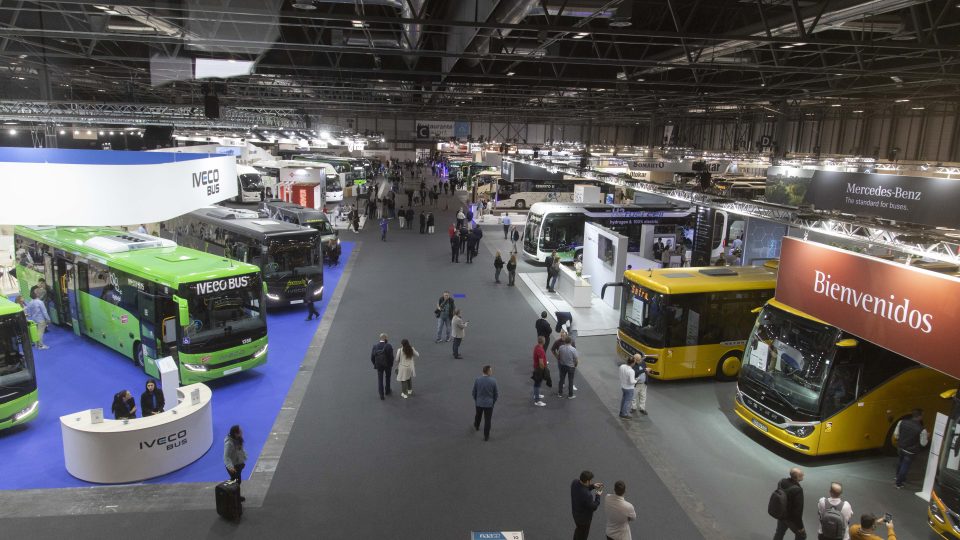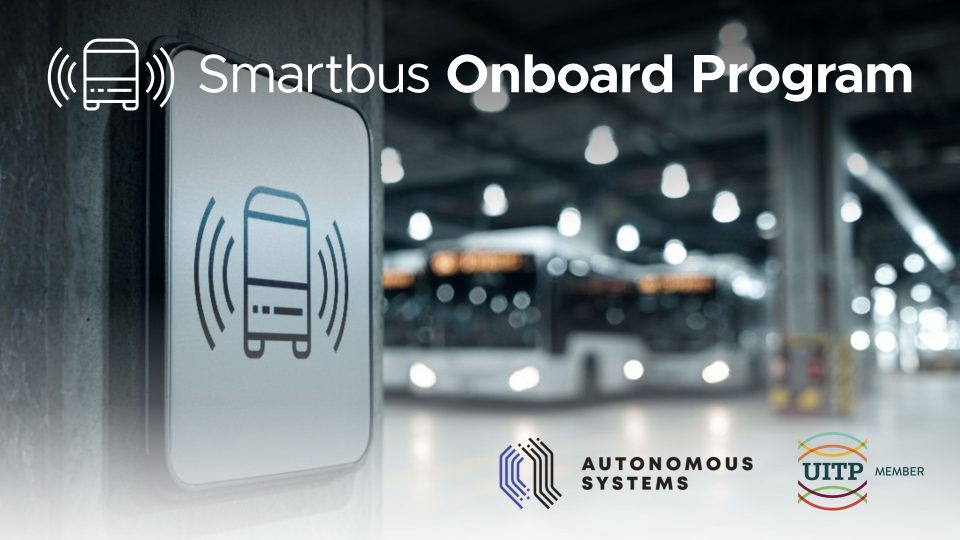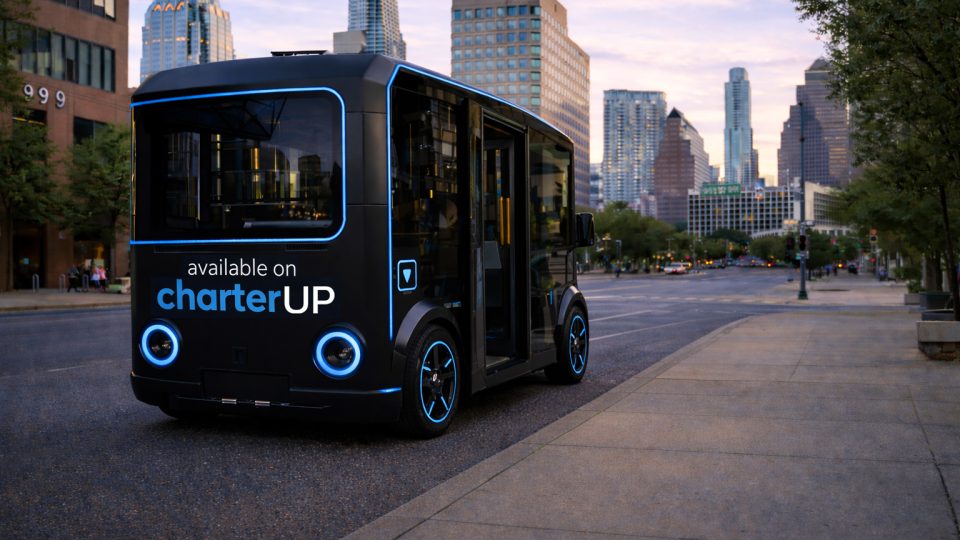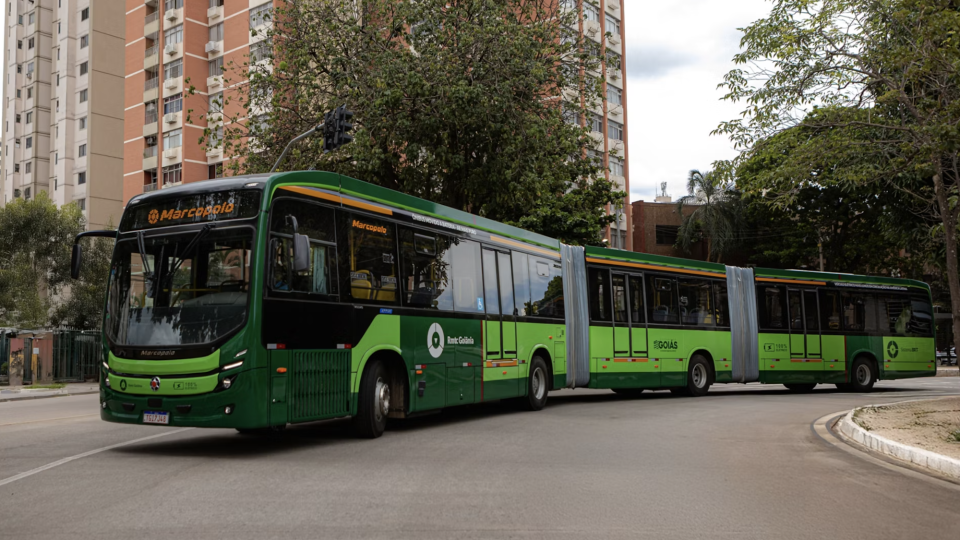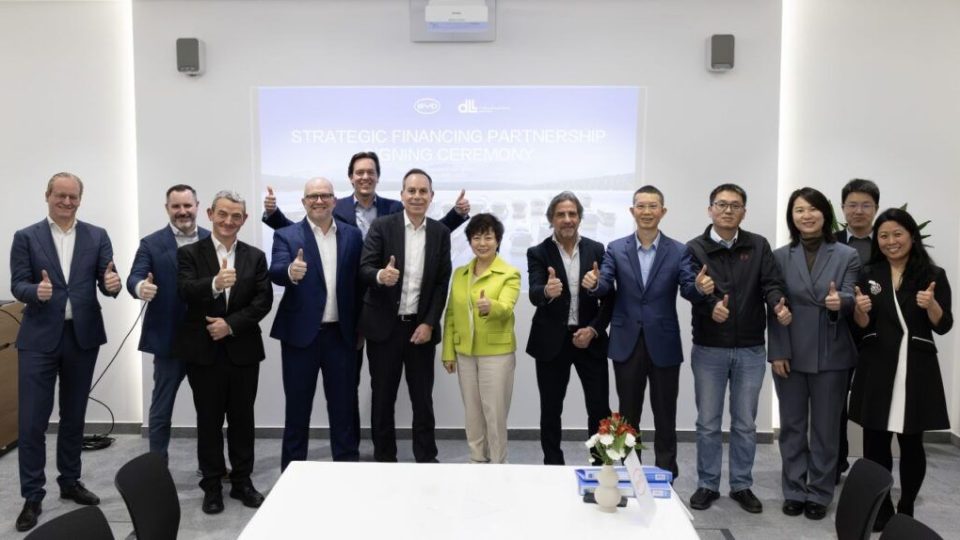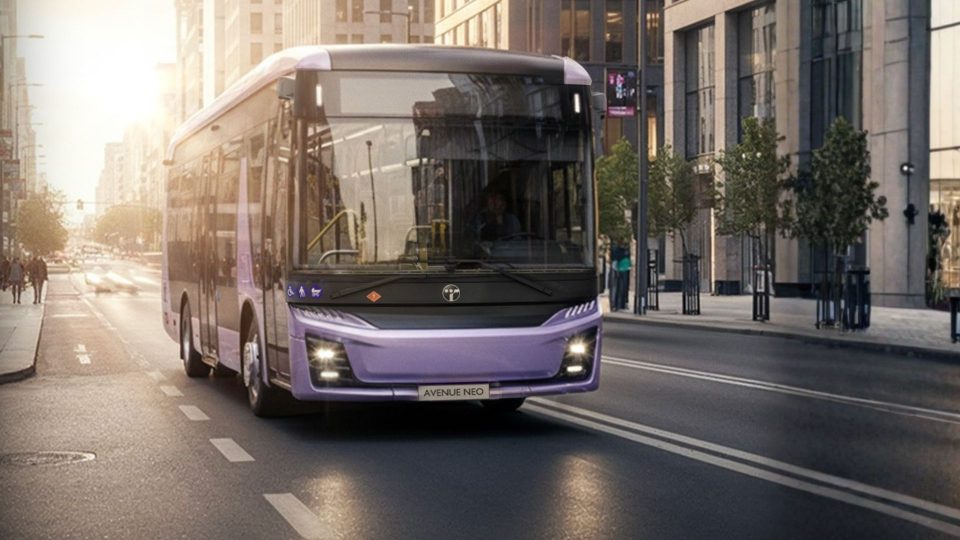Karsan brings Autonomous e-Jest to the USA, first deployments set for 2026 with Beep
Karsan has announced its first U.S. order for ten Autonomous e-Jests, marking the start of the model’s deployment in North America. The vehicles will enter service from 2026 in the Atlanta area and Central Florida. The newly-launched autonomous e-Jest was presented to the U.S. market shortly before the order announcement, following its European premiere at […]
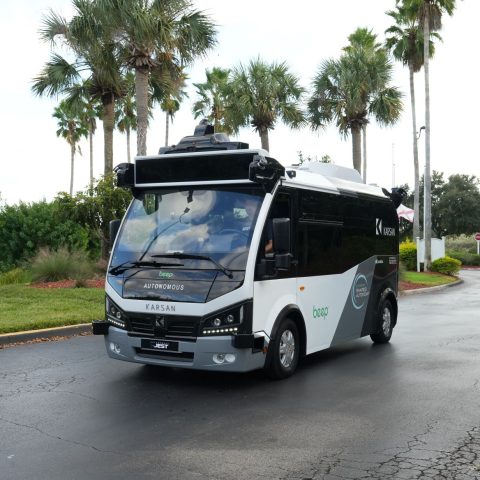
Karsan has announced its first U.S. order for ten Autonomous e-Jests, marking the start of the model’s deployment in North America. The vehicles will enter service from 2026 in the Atlanta area and Central Florida.
The newly-launched autonomous e-Jest was presented to the U.S. market shortly before the order announcement, following its European premiere at Busworld Europe 2025. The six-meter electric minibus made its first public appearance in Orlando, Florida, where it was also featured at the Florida Autonomous Vehicle Summit, offering autonomous ride experiences to participants from November 5–7.
Karsan entered the North American market in 2022 with the e-Jest, in Canada. More than 10,000 units of the Jest family have been produced globally, including over 1,000 electric versions currently in operation across Europe, North America, and Japan. Earlier this year, Karsan North American dealer Damera announced it will open a e-bus assembly plant in Illinois, USA, to produce e-Jest and “additional models”.
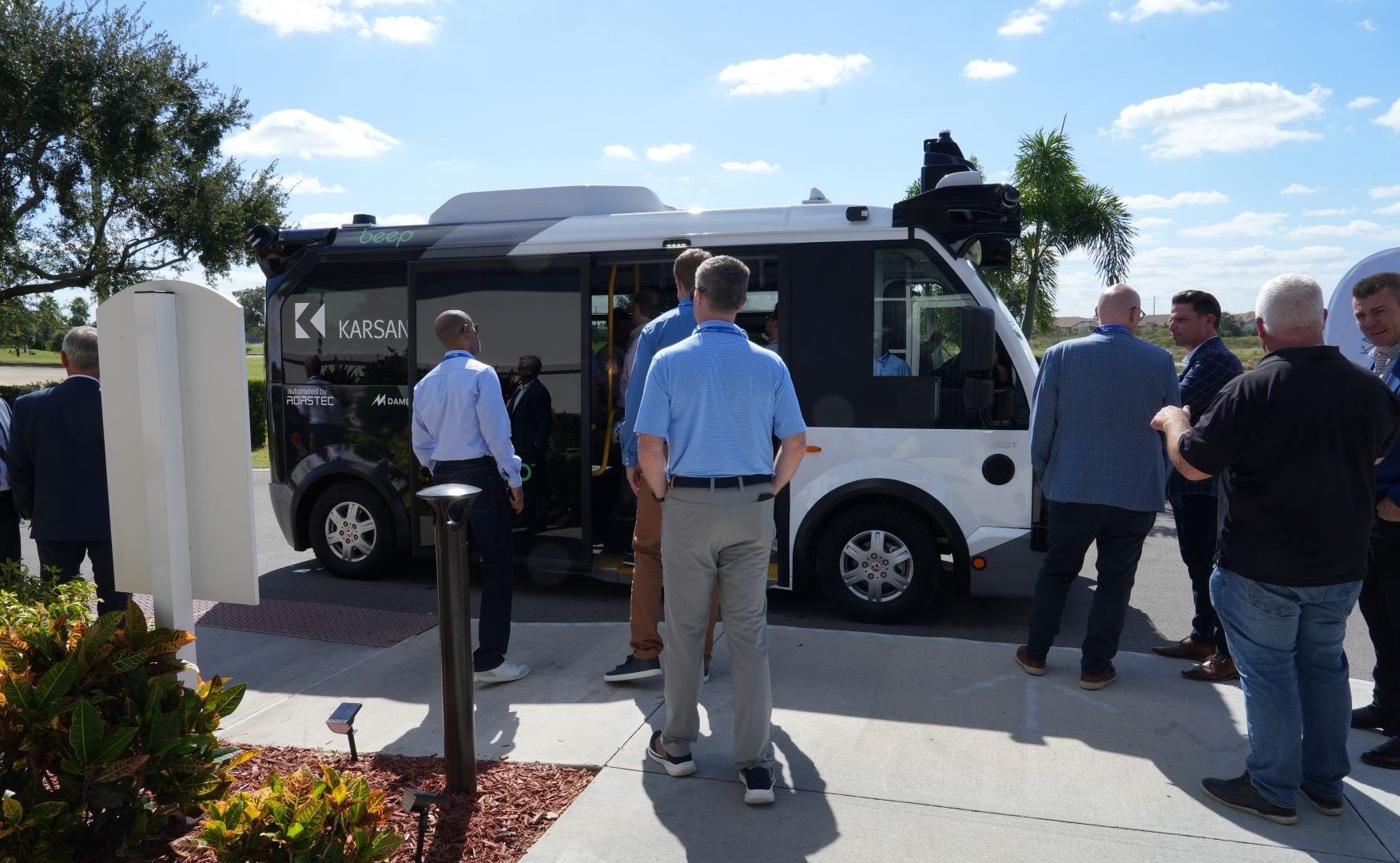
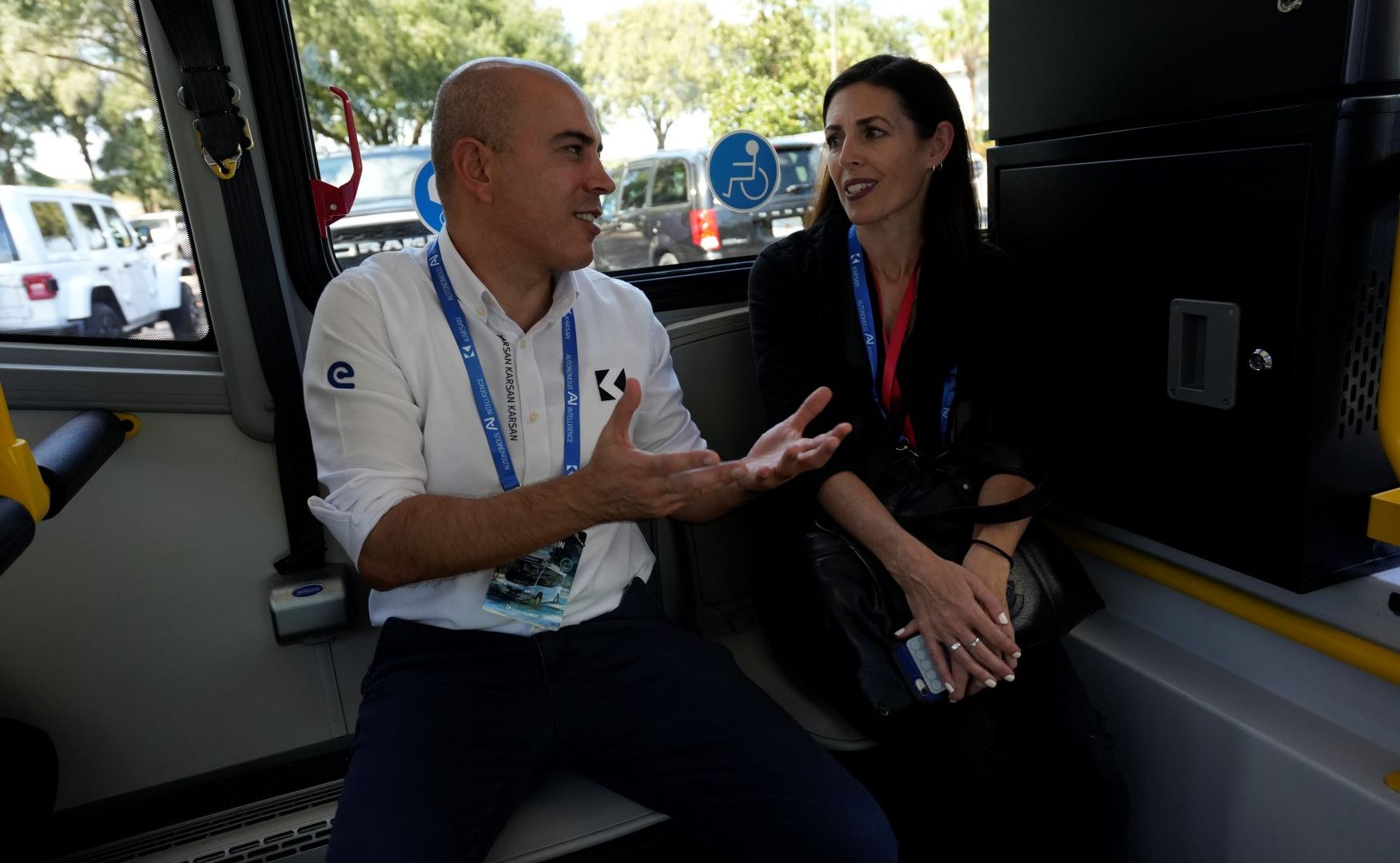
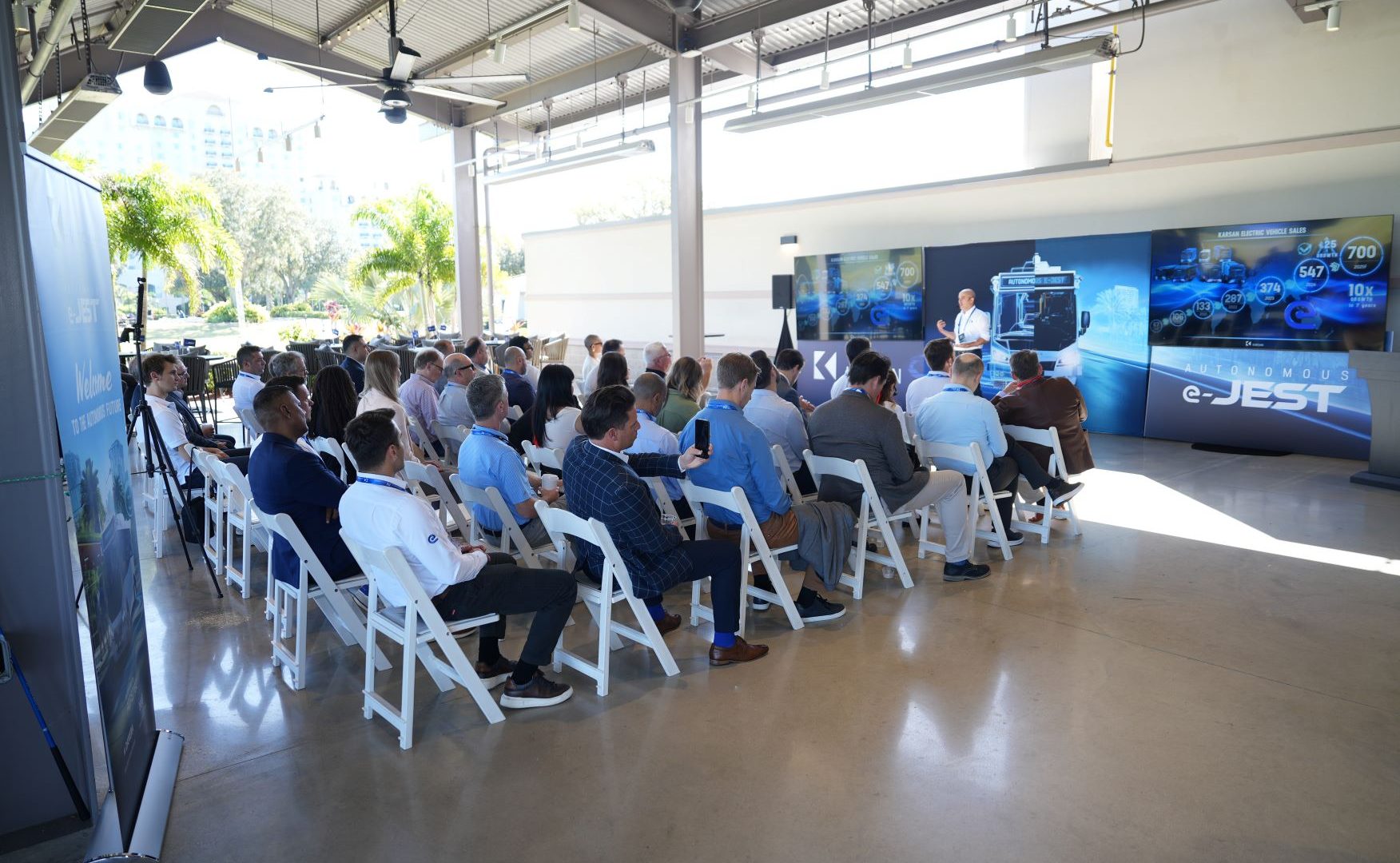
A cooperation between Karsan, Adastec, Damera, Beep
The autonomous e-Jest project in the U.S. brings together Karsan’s technology partner Adastec, North American distributor Damera, and autonomous service operator Beep. The vehicles will represent the first fleet of fully electric, autonomous minibuses for public road use in the U.S., Karsan says.
The collaboration follows Karsan’s earlier success in Europe, where its Autonomous e-Atak model has accumulated over 150,000 kilometers of real-world operation. The e-Jest now integrates the same Level 4 automation platform developed by Adastec, adapted to the smaller, more agile 6-meter bus designed for dense urban areas.
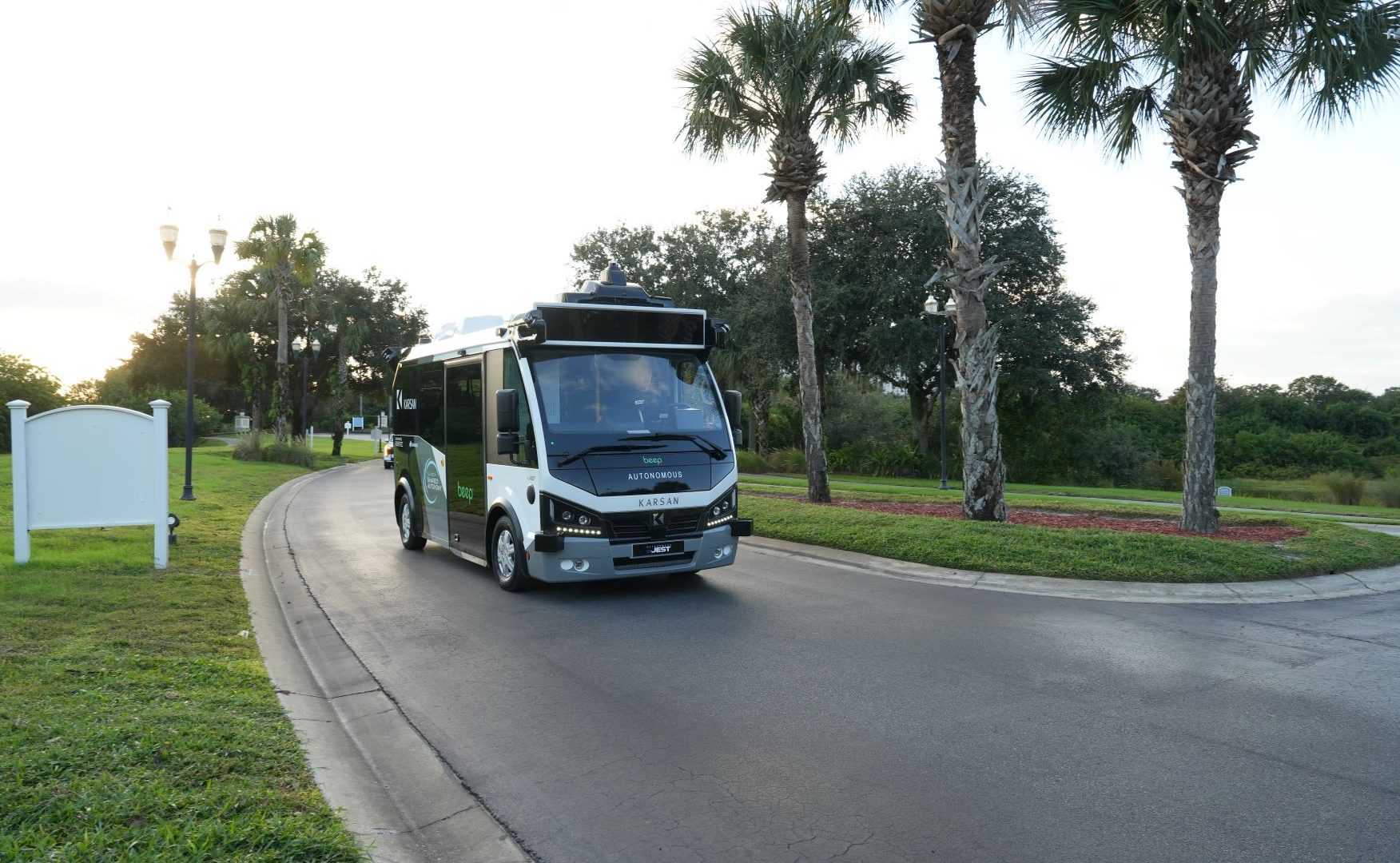
The Karsan Autonomous e-Jest features a 135 kW motor, an 88 kWh battery providing up to 210 km of range, and fast-charging capability in under 90 minutes. Equipped with 23 sensors—including LiDAR, radar, GNSS, and cameras—the vehicle enables 360-degree perception for autonomous navigation, lane keeping, and obstacle detection.
Fully compliant with FMVSS and ADA standards, the autonomous e-Jest has completed Altoona testing and is approved for commercial operation in the U.S.
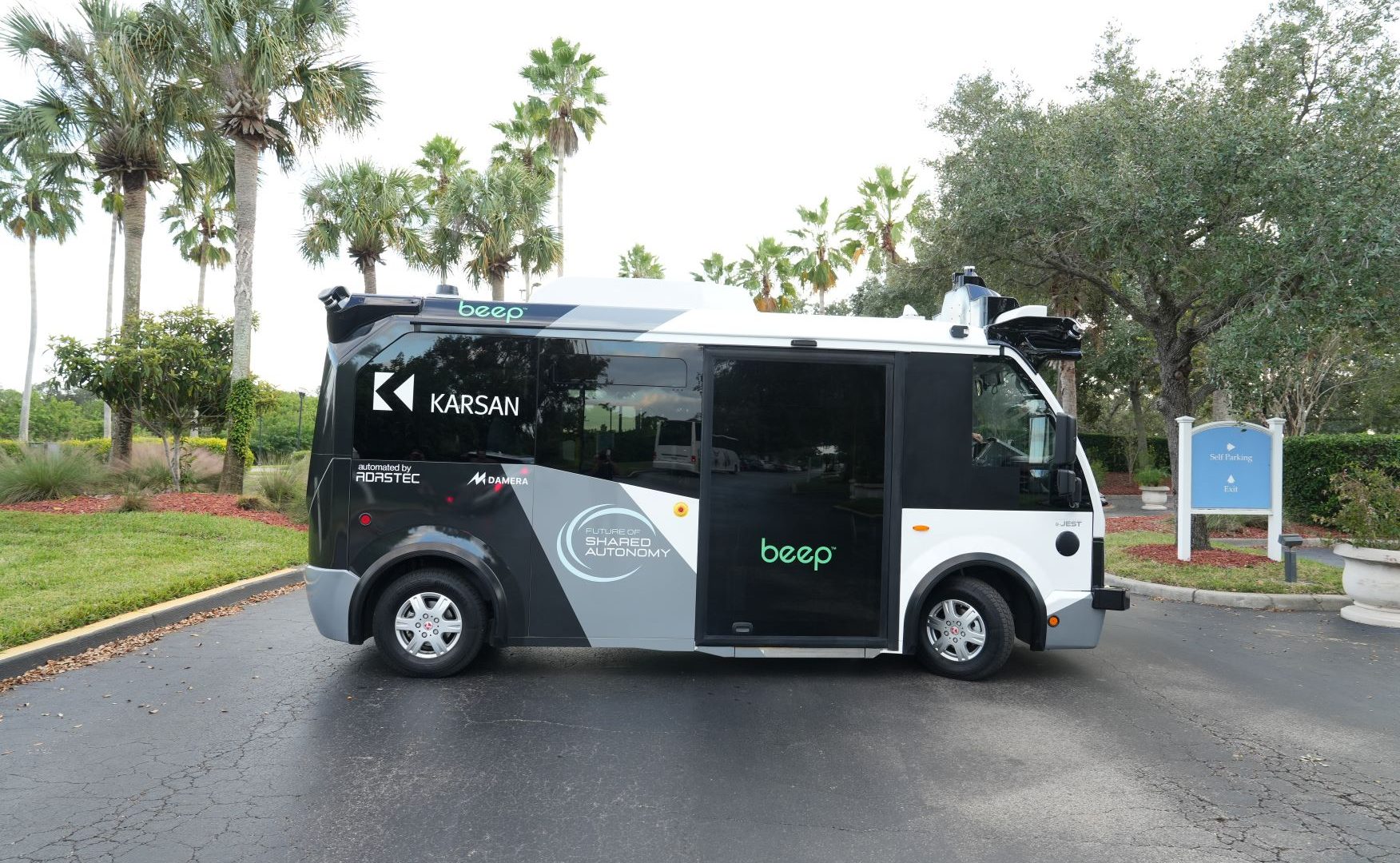
The model can carry up to 16 passengers and is intended for first- and last-mile applications in both public and private transport networks.
Karsan, a global vision from Japan to the USA
Karsan CEO Okan Baş said: “With this step, we are strengthening our autonomous presence in America following our success in Europe. Our e-Jest model, which entered North America in 2022, was met with great enthusiasm and affection—earning the nickname ‘Cute Bus’. Now, we are taking our position in the market one step further with its latest autonomous version, the Autonomous e-Jest. The order of 10 Autonomous e-Jest from the U.S. is the clearest indication of trust in Karsan’s technological strength and strong partnerships in autonomous mobility. Combining the agility and efficiency of e-Jest with the proven autonomous technology of our e-Atak model opens the doors to a new era in urban transportation. With this move, we once again demonstrate that Karsan is ready to deliver electric, autonomous, and future-ready mobility solutions in the North American market.”
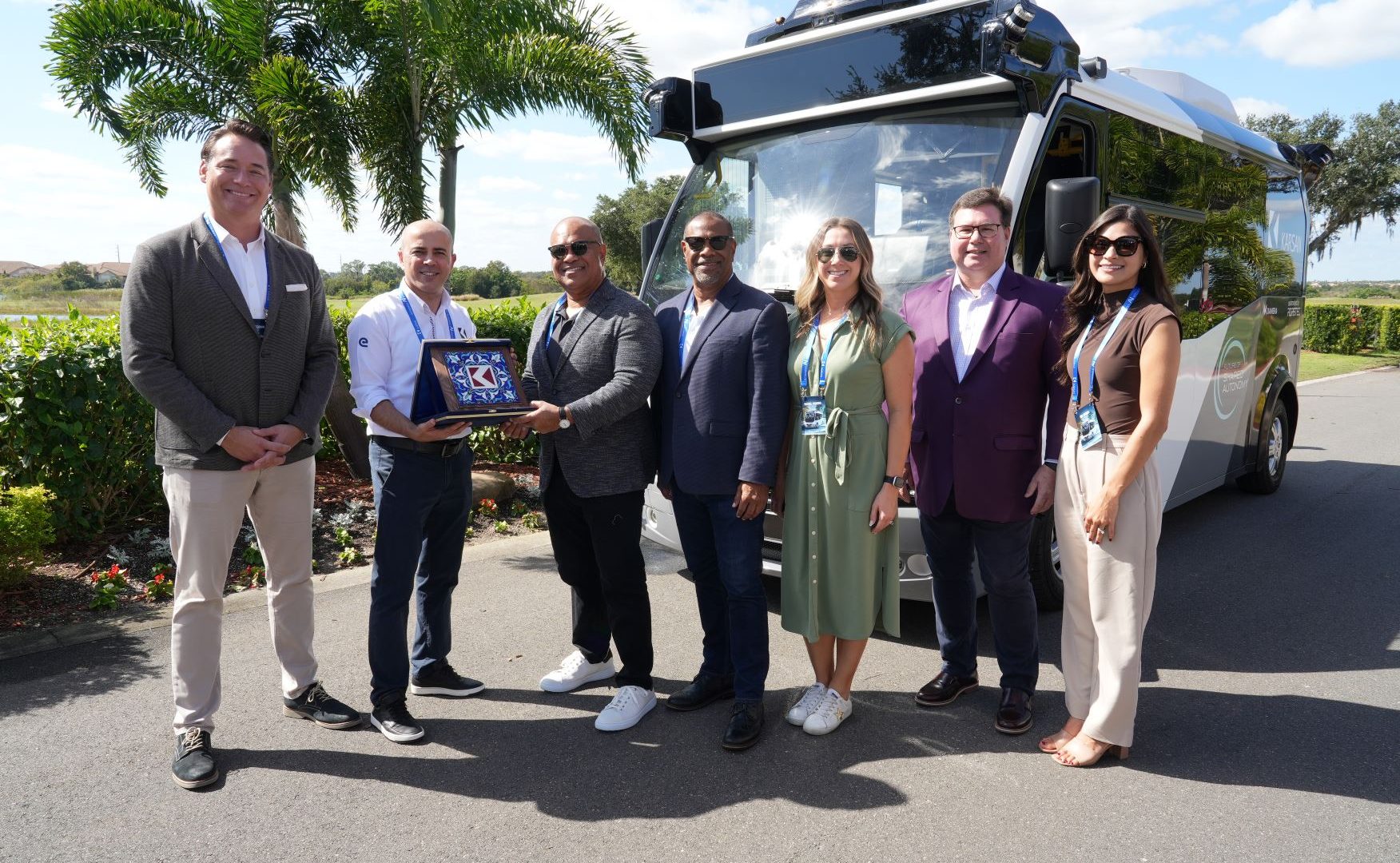
Karsan Chief Commercial Officer Deniz Çetin said: “The first Autonomous e-Jest projects in America are a concrete reflection of Karsan’s global vision. We are proud to bring to America the experience we have gained over the years by carrying ticketed passengers in open traffic in autonomous driving mode. These collaborations are a very valuable step that reinforces the transformation power of our brand on a global scale.”
